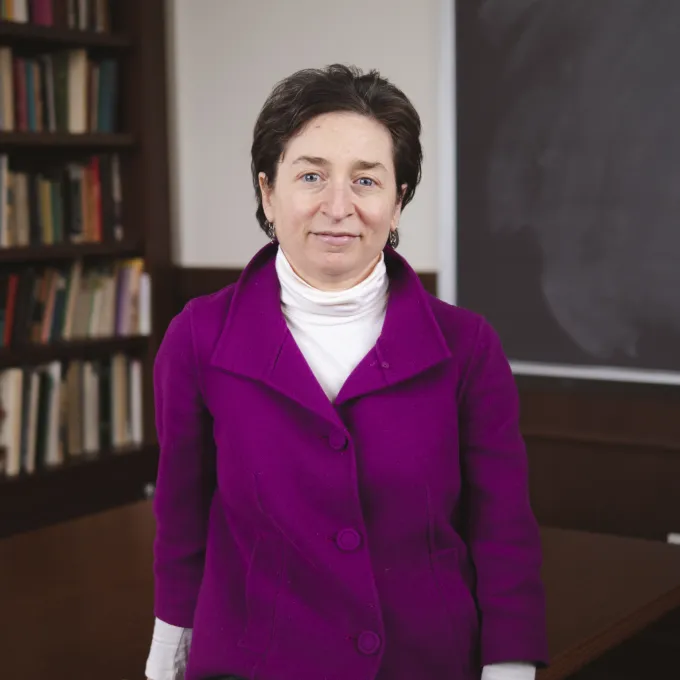Selected Publications
Books
Eating Nature in Modern Germany: Food, Agriculture and Environment, c. 1870-2000 (Cambridge University Press, 2017)
A Science for the Soul: Occultism and the Genesis of the German Modern (Johns Hopkins University Press, 2004)
Peer-Reviewed Articles and Chapters
"German Health Narratives between Life Reform and Medical Enlightenment, 1890-1930," Seminar: A Journal of Germanic Studies (2023), 69-93
"Nutritional Modernity: The German Case," Osiris 35 (2020), 183-203
"The Wife as Family Physician: Making and Moving a Health Epistemology for Women," Social History of Medicine (2019), 1188-1210
"How Vegetarians, Naturopaths, Scientists, and Physicians Unmade the Protein Standard in Modern Germany" in Setting Nutritional Standards: Theory, Politics, Practices, ed. Elizabeth Neswald, David F. Smith, and Ulrike Thoms (Rochester, NY: University of Rochester Press, 2016), 52-73
"Artificial or Biological? Nature, Fertilizer, and the Origins of German Organic Agriculture" in New Perspectives on the History of Life Sciences and Agriculture, eds. Denise Phillips and Sharon Kingsland (Cham: Springer, 2015), 183-203
"Nature and the Nazi Diet," Food and Foodways, 17 (2009): 1-20
"Max Rubner and the Biopolitics of Rational Nutrition," Central European History 41 (2008): 1-25
"The Culture of Knowledge in the Metropolis of Science: Spiritualism and Liberalism in Fin-de-Siècle Berlin" in Wissenschaft und Öffentlichkeit in Berlin, 1870-1930/Science for the Public in Berlin, 1870-1930, ed. Constantin Goschler (Wiesbaden: Franz Steiner Verlag, 2000), 127-154.
Edited Volumes
Frankenstein at 200: It's Alive! , Special Issue of The Common Reader 10 (Fall 2018)
In the Media
Vegetarianism was Part of Social Reformism, Interview with Julia Malitska for Baltic Worlds (June 2022)
"Triumph of the Till: The Organic Food Movement's Nazi's Past," World Policy Journal (Summer 2018), 83-87
Eating Organic in Nazi Germany, Hold That Thought Podcast, Washington University in St. Louis (September 7, 2016)
Happy Birthday, Frankenstein!, Center for the Humanities, Washington University in St. Louis (December 7, 2015)
Contagion! Back to the Past, Institute for Public Health, Washington University in St. Louis
Organic Origin Story, Center for the Humanities, Washington University in St. Louis (April 23, 2015)
Fellowships and Grants
Co-Leader with Sari Altschuler, Seminar on "Health Humanities," Radcliffe Institute for Advanced Studies, Harvard University, May 2025
Humanities Center Faculty Fellowship, Washington University in St. Louis, Spring 2025
Co-Leader with Talia dan-Cohen, Programmatic Grant on "Science in the Public Square," Incubator for Transdisciplinary Futures, Washington University in St. Louis, 2022-2024
Co-Leader with Sari Altschuler, Exploratory Seminar on "Rethinking Health and the Humanities during / after COVID," Radcliffe Institute for Advanced Studies, Harvard University, June 2022
National Endowment for the Humanities Faculty Award, 2011-2012
Radcliffe Institute for Advanced Studies Fellowship, Harvard University, 2004-2005
Courses
Health and Disease in World History
Modern Europe
The First World War
Modern European Women
Modern Germany
Nazi Germany
What is Medical Humanities?
The History of the Body
Frankenstein: Origins and Afterlives
Graduate Readings in Modern German History
Graduate Seminar in Modern European History
Graduate Examination Fields
Modern Germany / Central Europe
Europe since 1750
History of the Body
Medicine in World History

